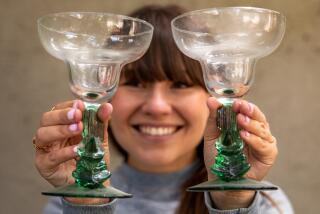When Middlemen Sell Used Cars
- Share via
Next to Las Vegas or Wall Street, the used-car market may be the nation’s biggest free-for-all. Last year, an estimated 40 million used cars were sold in the United States.
In the endless search for the best values, many buyers and sellers venture into private-party transactions. The private market works, but it is also fraught with hazards.
Experts are divided on the best way to buy or sell used cars. Jack Gillis, author of the “Used Car Book,” says private parties are the best source. But Darrell Parrish, author of the new book “Used Cars,” advises avoiding private-party deals at all costs.
Who is right? It depends on how much care and time you are willing to invest in working through the want ads. If you do it right, the private marketplace can work well.
Car dealerships are seldom willing to pay even the wholesale value of a car on trade-in. They mark down the prices for all sorts of ridiculous reasons, including trying to charge detailing to the seller. While profits on new cars may be as little as 2%, used-car deals can fetch a dealer a healthy 30% profit.
So, how do you avoid a rip-off?
First determine a car’s market value by checking one of several reference publications published by the National Automobile Dealers Assn., the Kelley Blue Book or Edmund’s Used Car Prices.
Next, be aware that not all newspaper ads are placed by private parties.
“Curbstoners”--middlemen who trade cars out of their homes--permeate the used-car market, says Lou Nanos, owner of Lemon-aide auto buying service in Riverside County. They are pros at offering low-ball prices to sellers and exorbitant prices to buyers.
How can you identify a curbstoner?
If you are responding to an ad, never say you are calling about the Ford or Chrysler advertised in the paper.
Instead, say only: “I’m calling about your car that’s for sale.” Then, ask a specific question about it. If the seller hesitates or asks which car you are calling about, you have a curbside dealer on the phone, says Mark Koch, who operates a used-car inspection service in Los Angeles.
You often find curbstoners at new-car dealerships. If a salesman says he can get you a better deal on a trade-in through a friend, you are talking to a curbstoner. Sometimes, the used-car manager and the new-car salesman work together to drive down trade-in values, Nanos said.
A used-car buyer also should make sure that a car’s registration is in the name of the person selling the car. If not, the seller is probably a pro.
Buyers should consider having the cars they’re interested in inspected. Services such as the ones operated by Koch and Nanos offer inspections at the seller’s location for a reasonable fee.
Finally, most private-party deals are for cash. No seller should risk accepting a check, even a certified check. But if the deal is for a large amount of cash, you should conduct the transaction at a bank.
Vartabedian cannot answer mail personally but will attempt to respond in this column to automotive questions of general interest. Do not telephone. Write to Your Wheels, Times Mirror Square, Los Angeles, Calif. 90053







